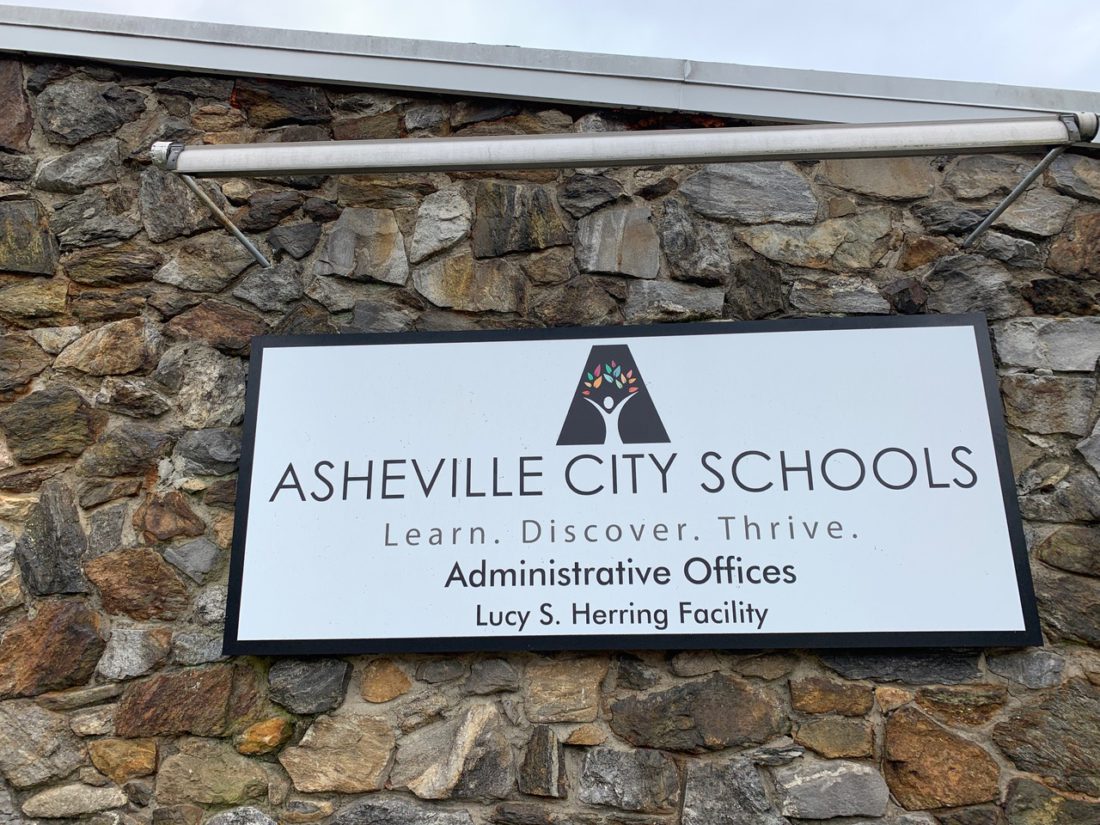Buncombe County government spending is set to expand at a healthy pace in the 2022-23 fiscal year — about 9.5% from the adopted 2021-22 general fund budget of $360.4 million to a projected budget of nearly $394.7 million. If the Asheville and Buncombe school systems have their way, however, the county’s support for education will grow even more quickly.
Requests outlined by Buncombe County Schools Superintendent Tony Baldwin and Asheville City Schools Superintendent Gene Freeman at a May 10 Board of Commissioners work session sought county government spending increases of up to $27.9 million, representing a nearly 32% jump from the county’s current $87.3 million contribution. ACS also asked county leaders to approve a 13% increase in the supplemental tax assessed on property within the school district, from 10.62 cents per $100 of property value to 12 cents.
Baldwin’s presentation focused on the need for salary increases to attract and retain school employees. Based on a recently completed compensation study, he said, the Buncombe system hopes to raise average wages for teachers and other certified staff by 2.5%, while bumping pay for noncertified staff such as custodians by 2.5% or to at least $15 per hour, whichever is higher.
As an example of the system’s hiring challenges, Baldwin noted that he had advertised for 105 custodial positions since the start of the school year. On average, he said, fewer than two people had applied for each vacancy. “It’d be hard to run a business like that, wouldn’t it, Commissioner [Robert] Pressley?” Baldwin asked. (Pressley owns Celebrity’s Hot Dogs in Bent Creek.)
Meanwhile, Asheville school leaders couched their request as a matter of preserving existing services. Having allocated $3.5 million of the system’s $5.66 million in financial reserves to balance the current year’s budget, said Asheville City Board of Education Chair James Carter, the schools wouldn’t be able to cover the same expenses in fiscal year 2022-23 without additional help from the county.
The ACS budget does not include any salary increases beyond those mandated by the N.C. General Assembly. That move drew criticism from the Asheville City Association of Educators, a professional group representing the system’s teachers, which has called for a living wage of at least $17.70 per hour for all employees.
Several commissioners expressed frustration at the Asheville schools’ proposal. In preparation for the May 10 meeting, the county board had asked the system to prepare a plan for reducing costs over the next three years. As presented, that plan consisted of just one slide containing general items such as “Reduce staff = $1 million” and “consolidation of facilities.”
“We’ve gone with this basic version because, frankly, as we get into the new board, we want to make sure that they have the opportunity to add to this list as well,” Carter answered, when pressed for more details by county board Chair Brownie Newman. The five-member school board, currently appointed by Asheville City Council, will expand this year to seven seats, four of which will be filled by newly elected members in November. (Two current members whose terms end in November, Shaunda Sandford and Martha Geitner, are not running for election).
“We can’t wait on the new school board; we’ve got to do things now. That’s why you were put in place,” said Commissioner Al Whitesides. “You have a fiduciary responsibility to do your job! Don’t lay down on us now, when we need you the most.”
After the ACS representatives left the meeting, Commissioner Amanda Edwards suggested that the system was reluctant to release more detailed plans due to concerns over community pushback. Previous decisions justified by the school board as cost-cutting measures, such as the closure of Asheville Primary School, have been blasted by parents and educators at school board meetings and on social media.
“Maybe as they present those [options], we can work with them to help ease the fears,” Edwards said. “Anytime one solution or idea is brought forward, the emails start coming. I think it creates a fear within the [ACS administration] and the school board to really put some of those decisions out.”
“I totally agree with that. At the same time, decisions have to be made,” responded Newman.
County Manager Avril Pinder will present her recommendations for Buncombe’s budget, including contributions to the school systems, Thursday, May 19. A public hearing on the budget is scheduled for Tuesday, June 7, and the document’s final adoption for the board is tentatively slated for Tuesday, June 21.




I have always supported schools and school funding. It is a very important function in our society.
However, now understanding the gross inefficiency of two school systems (Buncombe County) and smaller (Asheville City) existing side-by–side, I am against any additional funds until the two systems are merged into one. This merger would eliminate duplicate administrative functions as well as duplicate political entities. Yes, of course the new Asheville Buncombe School system (ABS) would require refiguring School Board representation (districts and at-large recommended). A new combined school system would still offer neighborhood schools within Asheville but also provide for greater choice of attendance for county and city residents alike.
The time is now to combine these two school systems.
And while we’re at it, consider this: How much more efficient our local government would be if we combined Asheville City and Buncombe County into one County-wide entity. The time is coming folks when automatic tax increases are going to be tolerated by the citizenry….for ANY function. We better start looking for ways to make our local government a whole lot more efficient for those tax dollars.